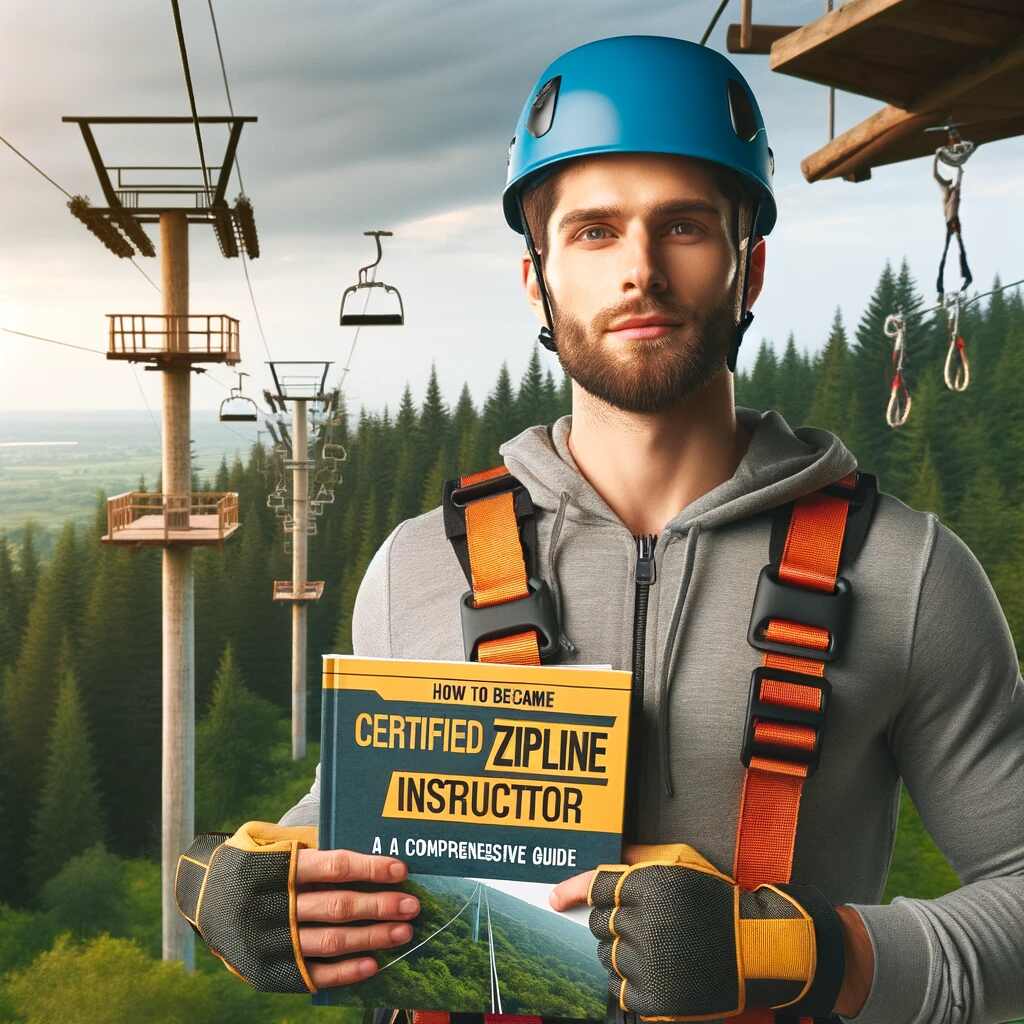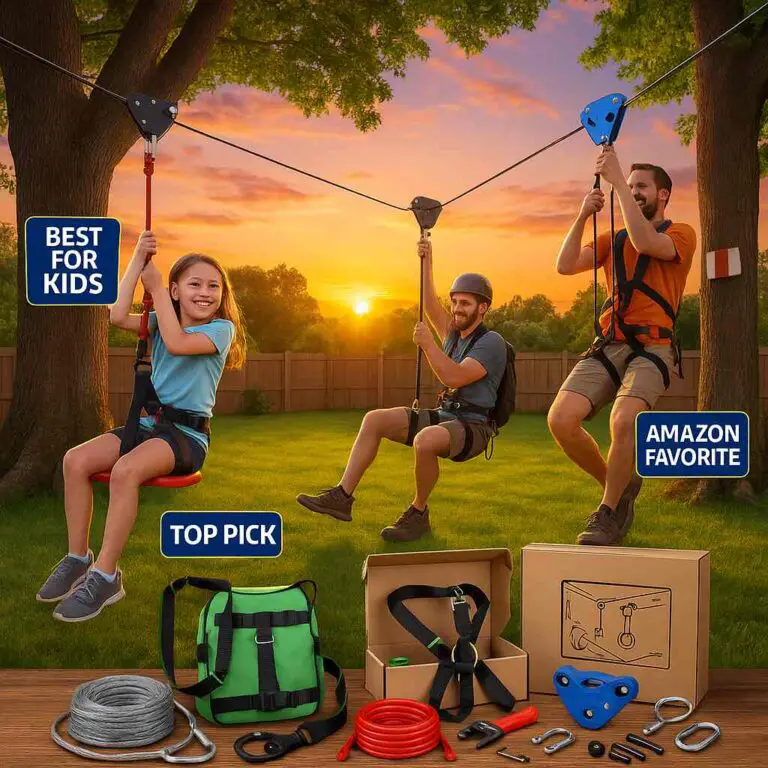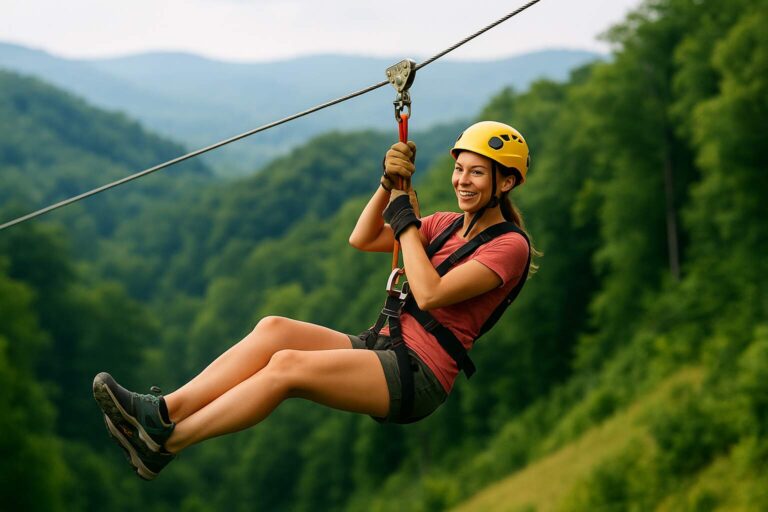Imagine the rush of soaring through the treetops, suspended by a harness, and propelled by gravity alone. Ziplining offers an exhilarating adventure that allows individuals to experience nature from a completely new perspective. As the popularity of ziplining continues to grow, so does the demand for qualified zipline instructors. If you’ve ever dreamed of turning your passion for adventure into a career, becoming a certified zipline instructor might be the perfect path for you.
In this comprehensive guide, we’ll walk you through the steps to becoming a certified zipline instructor, from gaining the necessary skills and qualifications to finding job opportunities in this exciting field.
1. Understanding the Role of a Zipline Instructor
Before embarking on the journey to become a certified zipline instructor, it’s crucial to have a clear understanding of what the job entails. Zipline instructors play a crucial role in ensuring the safety and enjoyment of participants during ziplining adventures. Here are some key responsibilities of a zipline instructor:
- Safety: The safety of participants is the top priority for zipline instructors. They are responsible for inspecting and maintaining equipment, conducting safety briefings, and enforcing safety rules and procedures.
- Instruction: Instructors teach participants how to use the zipline equipment properly, including harnesses, helmets, and carabiners. They provide clear instructions on how to launch, control speed, and brake while ziplining.
- Supervision: Zipline instructors oversee participants during their ziplining experience, ensuring that they follow all safety guidelines and have a safe and enjoyable adventure.
- Emergency Response: Instructors must be prepared to handle emergencies or accidents, such as rescuing participants stuck on a zipline or providing first aid when necessary.
- Customer Service: Providing excellent customer service is a significant aspect of the job. Instructors should be friendly, approachable, and able to answer questions and address concerns from participants.
2. Gaining the Required Skills and Qualifications
To become a certified zipline instructor, you need a combination of specific skills, qualifications, and personal qualities. Here are some prerequisites for the job:
- Physical Fitness: Zipline instructors must be physically fit and capable of performing physically demanding tasks, such as hiking to zipline platforms and assisting with rescues if needed.
- Communication Skills: Effective communication is essential for providing clear instructions and ensuring the safety of participants. Instructors should be able to communicate confidently and calmly.
- First Aid and CPR Certification: Many zipline courses require instructors to have current certifications in first aid and cardiopulmonary resuscitation (CPR) to respond to emergencies effectively.
- Technical Skills: Instructors should have a strong understanding of zipline equipment and be able to troubleshoot issues if they arise.
- Problem-Solving Abilities: Being able to assess and address potential safety hazards or participant concerns is crucial.
- Comfort with Heights: Since zipline instructors work at elevated heights, they must be comfortable with heights and able to move confidently on elevated platforms and ziplines.
3. Choosing the Right Zipline Instructor Certification Program
Once you’ve determined that a career as a zipline instructor is right for you, the next step is to choose the right certification program. There are several organizations that offer zipline instructor certification, each with its own training curriculum and requirements. It’s essential to research and select a program that aligns with your career goals and offers the level of certification you desire. Some well-known organizations that provide zipline instructor certification include:
- Association for Challenge Course Technology (ACCT): ACCT offers various certification levels, including Challenge Course Manager and Challenge Course Practitioner. These certifications cover ziplines as part of the broader challenge course industry.
- Professional Ropes Course Association (PRCA): PRCA provides certification for ropes course instructors, which can include zipline training as part of the curriculum.
- Adventure Park Insider (API): API offers training and certification programs specifically tailored to aerial adventure park and zipline operations.
- Zipline Training International (ZTI): ZTI specializes in zipline instructor training and offers certifications designed to prepare individuals for careers in the zipline industry.
Before enrolling in a certification program, thoroughly review the program’s curriculum, requirements, and costs. Additionally, consider factors such as the program’s reputation and whether it is recognized by zipline operators in your desired work location.
4. Completing the Training and Certification Process
Once you’ve chosen a zipline instructor certification program, you’ll need to complete the training and certification process. Here are the typical steps involved:
- Enroll in the Program: Start by enrolling in the certification program of your choice. Be prepared to provide any required prerequisites, such as proof of first aid and CPR certification.
- Attend Training: The training program will consist of classroom instruction, hands-on practical exercises, and assessments. You’ll learn about zipline equipment, safety protocols, instructional techniques, and emergency procedures.
- Pass Written Exams: Many certification programs require participants to pass written exams to demonstrate their knowledge of zipline operations, safety, and rescue procedures.
- Demonstrate Skills: You’ll also need to demonstrate your skills in practical scenarios. This may include setting up zipline equipment, conducting safety inspections, and simulating rescue situations.
- Gain Experience: Some certification programs may have experience requirements, such as a minimum number of hours working on zipline courses, before you can become a certified zipline instructor.
- Receive Certification: Upon successfully completing the program and meeting all requirements, you’ll receive your zipline instructor certification. This certification may need to be renewed periodically through continuing education or retesting.
5. Building Experience in the Field
After obtaining your zipline instructor certification, it’s time to gain practical experience in the field. Building experience is essential for becoming a competent and sought-after zipline instructor. Here are some steps to help you gain experience:
- Work as an Apprentice: Consider starting as an apprentice or assistant instructor at a zipline course or adventure park. This allows you to learn from experienced instructors and gain hands-on experience while under supervision.
- Seek Seasonal Opportunities: Many zipline courses and adventure parks hire seasonal instructors during peak tourist seasons. Seasonal positions can provide valuable experience and networking opportunities.
- Volunteer: If paid opportunities are limited, consider volunteering at non-profit organizations or community events that offer ziplining experiences. This can help you gain exposure to different aspects of the industry.
- Network: Attend industry conferences, workshops, and events to network with other zipline professionals. Building connections in the industry can lead to job opportunities and career growth.
- Continue Learning: Stay updated on industry trends, equipment advancements, and safety protocols by participating in ongoing training and workshops.
6. Finding Job Opportunities as a Zipline Instructor
Once you have gained experience and feel confident in your abilities as a zipline instructor, it’s time to start looking for job opportunities. Here are some avenues to explore:
- Zipline Courses and Adventure Parks: Many zipline courses and adventure parks hire certified zipline instructors. Look for job openings on their websites or contact them directly to inquire about positions.
- Outdoor Recreation Companies: Outdoor recreation companies that offer ziplining experiences as part of their services may also employ zipline instructors.
- Resorts and Lodges: Resorts and lodges located in scenic areas often have on-site zipline courses and hire instructors to oversee guest experiences.
- Travel and Tourism Industry: Explore job listings in the travel and tourism industry, as zipline instructors are often in demand in tourist destinations.
- Self-Employment: Some zipline instructors choose to start their own zipline adventure businesses. This option may require additional certifications and permits.
When applying for zipline instructor positions, be sure to tailor your resume and cover letter to highlight your relevant skills, certifications, and experience. Emphasize your commitment to safety and customer service, as these are critical aspects of the job.
7. Continuing Education and Career Advancement
The field of zipline instruction offers opportunities for career advancement and specialization. As you gain experience and expertise, consider the following avenues for career growth:
- Advanced Certifications: Some organizations offer advanced zipline instructor certifications, such as Lead Instructor or Master Instructor. These certifications can open doors to higher-paying positions and leadership roles.
- Specialization: Specialize in specific aspects of zipline operations, such as course design, equipment maintenance, or rescue training. Specialized skills can make you more valuable to employers.
- Management Positions: With experience, you can advance to supervisory or management positions within zipline operations. These roles may involve overseeing staff, course operations, and safety compliance.
- Training and Consultation: Consider becoming a zipline instructor trainer or consultant, helping others obtain their certifications and improve their operations.
- International Opportunities: Zipline instructors with extensive experience and certifications may have the opportunity to work at zipline courses and adventure parks in different countries, providing a unique and exciting career path.
Conclusion
Becoming a certified zipline instructor is a rewarding journey that allows you to combine your passion for adventure with a fulfilling career. By gaining the necessary skills, certifications, and experience, you can ensure the safety and enjoyment of participants while introducing them to the thrill of ziplining.
Remember that safety should always be your top priority as a zipline instructor. Continuously update your knowledge, stay current with industry standards, and strive for excellence in your role. With dedication and a commitment to providing memorable experiences, you can build a successful and satisfying career as a certified zipline instructor.








